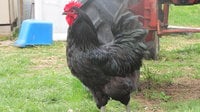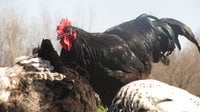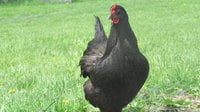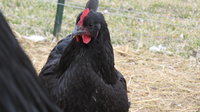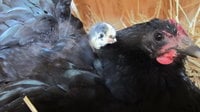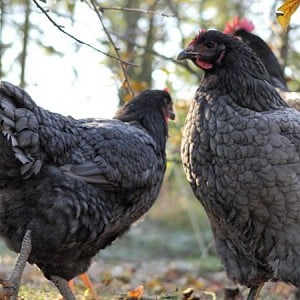General Information
- Breed Purpose
- Dual Purpose
- Comb
- Single
- Broodiness
- Seldom
- Climate Tolerance
- Cold
- Egg Productivity
- Medium
- Egg Size
- Large
- Egg Color
- Light Brown
- Breed Temperament
- Friendly,Easily handled,Calm,Docile
- Breed Colors/Varieties
- Black, White, Blue, Splash
- Breed Size
- Large Fowl
- APA/ABA Class
- American
The well named Jersey Giant chicken is the largest purebred breed of chicken. It was the result of a breeding program started around 1870 by John and Thomas Black in New Jersey, with the original objective of the breed being a replacement for the turkey. The resulting adult birds are massive in size with mature roosters weighing in at 13 lbs, hens 10 lbs, and capons capable of reaching 20 lbs.
The Jersey Giant is known as a calm and docile breed with an even temperament. Adults are very poor flyers so are relatively easy to keep confined, they are fine foragers and are sometimes used as a slow growing meat bird on pasture. The hens are fair to good layers of large brown eggs and are known as very good winter layers. They will occasionally go broody. The roosters are said to have exceptionally good temperaments. They are single combed, clean legged, and recognized in three colors, black, white, and blue. The breeds used in the development of the Jersey Giant included Javas, Orpingtons, Langshans, and Brahmas.
The breed was recognized by the APA in 1922 and is on The Livestock Conservancy's Watch list.
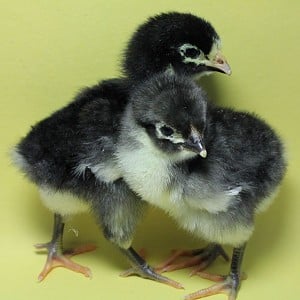
Jersey Giant chicks
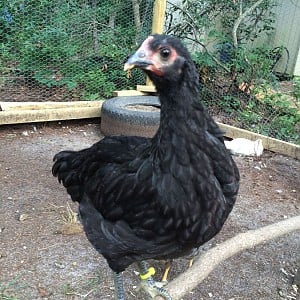
Jersey Giant juvenile
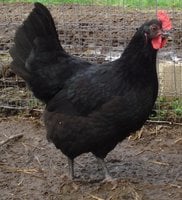
Jersey Giant hen
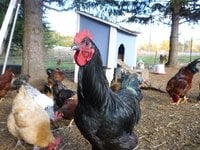
Jersey Giant rooster
For information about this breed and their owners' and breeders' experiences with them, see our breed discussion here: https://www.backyardchickens.com/threads/chicken-breed-focus-jersey-giant.1007948/


